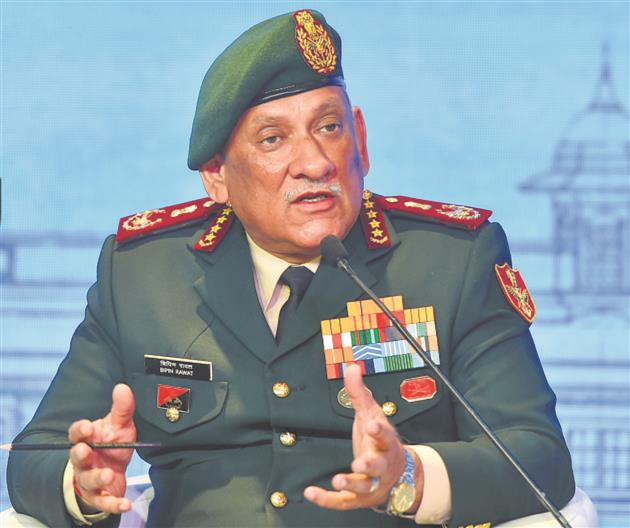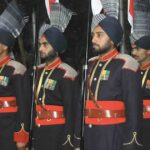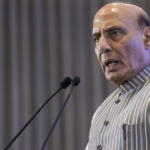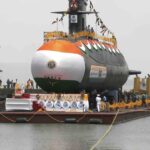
SOURCE: The Tribune
THE recent proposals by the Department of Military Affairs (DMA) headed by General Bipin Rawat, India’s newly appointed Chief of Defence Staff (CDS), to manage the fiscal challenge posed by the 12-fold increase in defence pensions over the past two decades, have generated a heated debate among service personnel.
From the 2001-02 fiscal, when defence pensions were Rs 12,000 crore, constituting 16.91 per cent of the overall defence budget, they had risen to a whopping Rs 1,33,825 crore in the financial year 2020-21. This equals 28.39 per cent of the total annual defence outlay, posing serious concerns for the federal government struggling to shore up its finances.
Consequently, the DMA’s proposals to counter the government’s dire economic predicament by increasing the retirement age of military officers and concomitantly scaling down their pensions, have raised a veritable storm among service veterans. Smarting from the move by the CDS to reduce officers’ messes and canteen stores department (CSD) outlets at all military stations, these retirees are venting their anger on social media, claiming that these latest moves are ill-advised, impracticable and unviable.
Official sources said the DMA has proposed that the retirement age of one, two and three-star service officers be increased by one to three years. Consequently, Colonel, Brigadier and Major General-level officers and their counterparts in the Navy and Air Force, would under the new scheme, retire at the age of 57, 58 and 59 years, respectively. Military personnel in logistics, medical, technical and other branches, however, will continue to superannuate at the age of 57, but presently, it is not known whether similar measures will apply to Personnel Below Officer Rank (PBOR) who constitute the bulk of all service personnel.
According to the DMA proposal, only service personnel retiring after completing 35 years or more of service, would be eligible for full pension, which presently equals 50 per cent of the last drawn emoluments. But officers retiring with 31-35 years of service will get 37.5 per cent of their last pay, an amount that will drop to 30 per cent for those retiring after 26-30 years. Officers leaving after 20-25 years of employment will only receive a mere 25 per cent as pension.
The DMA is believed to have asked the services to ‘process’ the draft Government Sanction Letter (GSL) by November 10 for perusal by its secretary, General Rawat, appointed CDS on January 1, for a three-year tenure. Seemingly, the DMA appears not to have evaluated what impact these proposals would have on the morale of the armed forces. Many retired and serving officers concur that increasing the retirement age would not only block advancement in a pyramidical promotional structure, but the corresponding reduction in pension, if approved, might also not lead to any major savings.
The proposed changes would also, without doubt, face protracted legal challenges as these are contrary to the accepted principle of one-rank-one-pension (OROP) and numerous legal rulings which emphasise that pensions are not a ‘bounty’ or ‘gratuitous payment’ subject to any governments will or pleasure, but a legally enforceable right.
In 1980, the Supreme Court too had ruled that dividing a homogeneous class of pensioners based on indiscernible rational principles amounted to ‘arbitrariness’ and violated Article 14 of the Indian Constitution that guarantees equal protection to all under the rule of law. The proposed system of graded pensions for the armed forces would also fall foul of this fundamental principle, creating in turn, a legally untenable distinction between military and civilian pensioners, further complicating an already vexatious and emotive situation.
Moreover, the extant formula pegging pensions at 50% of the last pay drawn was adopted by the government years ago, following recommendations by the Sixth Central Pay Commission and cannot be changed merely by a DMA order, and would necessitate prior Cabinet approval.
However, at a juncture when the Indian military is locked in a stand-off with China’s People’s Liberation Army in eastern Ladakh, the Cabinet will need to think twice before sanctioning such a move which, apart from being of doubtful utility, also remains politically sensitive.
The categorised pension scheme will also be unfair to officers wanting to quit service due to blocked promotion prospects to seek alternative careers on Civvy Street. Many such personnel would be colonel-level officers who, on retirement would receive a paltry 25 per cent of their last drawn pay. If, on the other hand, these officers decide to continue in service till becoming eligible for a higher pension, they will, doubtlessly have little or no motivation to give their best, and end up as disgruntled deadwood inside the system.
Extended service tenures will also skewer the youthful age profile of the armed forces, reducing which is one of the military’s stated goals for greater operational efficiency. This is particularly so for the Army that is on near-permanent deployment on counter-insurgency operations in Kashmir and elsewhere, necessitating a younger officer profile.
For a change, however, the civilian bureaucracy in the Ministry of Defence (MoD) — pilloried for decades by the military for arbitrariness and insensitivity— cannot be blamed for the apparently flawed pension and age enhancement schemes, as both have sole-DMA ownership. The DMA was instituted in December 2019 following decades of lobbying by the military and the strategic community which had collectively asserted that no meaningful defence reforms were possible without a CDS.
They reasoned that only a CDS could initiate synergy among the armed forces, optimise scarce financial and human resources, and provide single-point military advice to the government. But now that their wish has materialised with General Rawat’s appointment, their hopes appear belied as multiple DMA measures have been adversely received by them.
In the end, nothing hurts the military more than being disappointed by the institution it had fiercely demanded and thought would be indispensable in diluting oppressive ‘civilian control’ over the armed forces.






